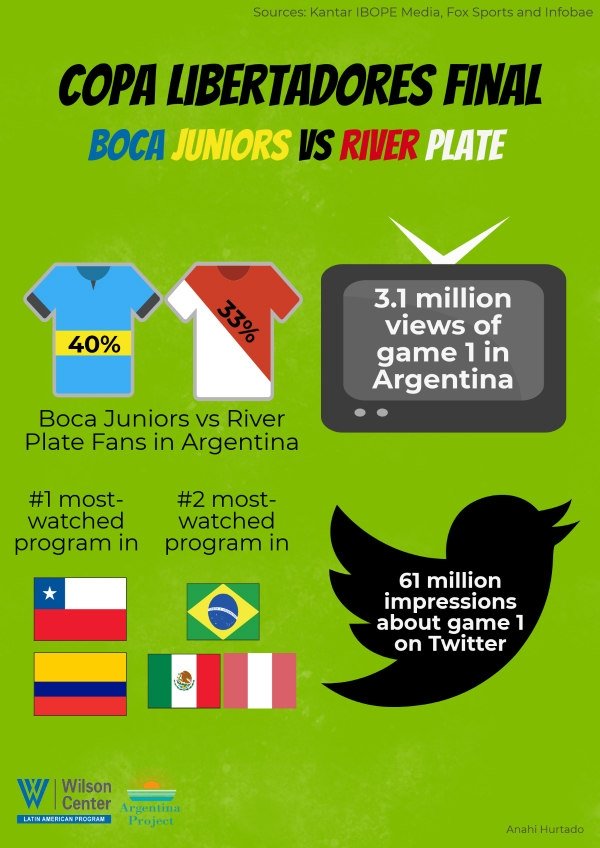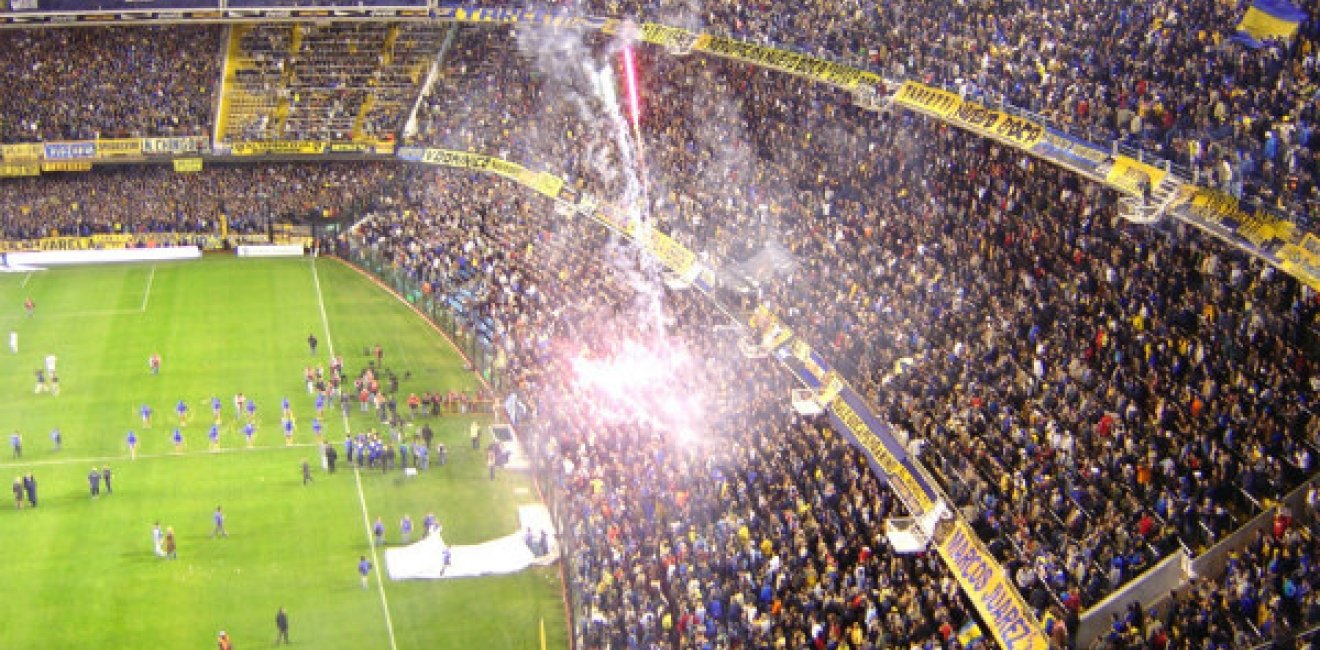
A blog of the Latin America Program
The world as we know it will end November 24. Perhaps not the whole planet, but things will never be the same in Argentina.
Admittedly, that is saying a lot for Argentina, which seems to experience cataclysmic transformations every few years. But the second leg of the Copa Libertadores final – scheduled for tomorrow, between Argentine fùtbol giants Boca Juniors and River Plate – is no mere sporting contest. Rather, the winner will enjoy titanic bragging rights for years to come. (As for the loser? That will be the McDonalds beside Buenos Aires’s Obelisco, where Argentines gather for unruly post-game protests and celebrations.)
This all might sound like a soccer exaggeration. After all, Argentina’s World Cup drama last summer, despite months of hype, fizzled rapidly, amid talk of Lionel Messi’s retirement following Argentina’s 4-3 loss to France in the Round of 16. But in some ways, the Boca-River feud supersedes even the country’s quadrennial hunt for global soccer glory. It might be the most intense sports rivalry in the world. An introduction to an Argentine often involves stating soccer allegiances before even exchanging names. Fans are so intense that at times, the two clubs have shut their doors to anyone not rooting for the home team.
This is hardly the first time that Boca and River have squared off. Their matches – known as Superclásicos – are legendary. Tensions run so high that newspapers provide tips for reducing the risk of a heart attack. (For the first game of the Libertadores doubleheader finals, one Argentine radio station broadcast soothing color commentary, complemented by meditational music.) In all, the teams have faced each other 25 times in the prestigious Copa Libertadores, including last Saturday’s 2-2 tie, with ten wins for Boca, seven for River, and eight ties. Boca has won the tournament six times, and River holds three Libertadores trophies.
But this is apparently the first time club teams with so much historical baggage have met in the finals of an international tournament. In Argentina, it is hard to exaggerate the cultural significance. On November 30, the country is hosting the G-20 summit, where the leaders of the world’s largest countries – including Xi Jinping and President Trump, on his first Latin America trip – will gather in Buenos Aires. G-20 members account for 85 percent of global economic activity, and this is the first time the summit has taken place in South America. Nevertheless, it is a soccer match that is on everyone’s lips in Argentina.
That goes for the government, too. (And not only because President Mauricio Macri is the former chairman of Boca Juniors.) Securing the G-20 is a logistical nightmare in its own right. But now, Argentina also has to grapple with an amped-up Superclásico – a lit fuse that could either showcase the country’s soccer skills and energy, or reveal the violence, chaos and organized crime that has too often tarnished the beautiful game. After months of coordination with the United States, and a reassuringly uneventful World Trade Organization summit last December in Buenos Aires, the Argentine government is confident in its organizational bona-fides. But it is taking no chances. To deflate public anger at stagflation, and the unwelcome remedies of the unwelcome International Monetary Fund, Mr. Macri has jettisoned austerity to approve year-end bonuses and a range of giveaways to labor unions.
After all, Argentine politics might be the only thing more high-stakes and bare-knuckled than the Superclásico.


Latin America Program
The Wilson Center’s prestigious Latin America Program provides non-partisan expertise to a broad community of decision makers in the United States and Latin America on critical policy issues facing the Hemisphere. The Program provides insightful and actionable research for policymakers, private sector leaders, journalists, and public intellectuals in the United States and Latin America. To bridge the gap between scholarship and policy action, it fosters new inquiry, sponsors high-level public and private meetings among multiple stakeholders, and explores policy options to improve outcomes for citizens throughout the Americas. Drawing on the Wilson Center’s strength as the nation’s key non-partisan policy forum, the Program serves as a trusted source of analysis and a vital point of contact between the worlds of scholarship and action. Read more


Argentina Project
The Argentina Project is the premier institution for policy-relevant research on politics and economics in Argentina. Read more

Explore More in Weekly Asado
Browse Weekly Asado
Dengue Haunts South America’s Summers

Lessons from Costa Rica’s Economic Transformation

Women and Latin America’s Digital Revolution

